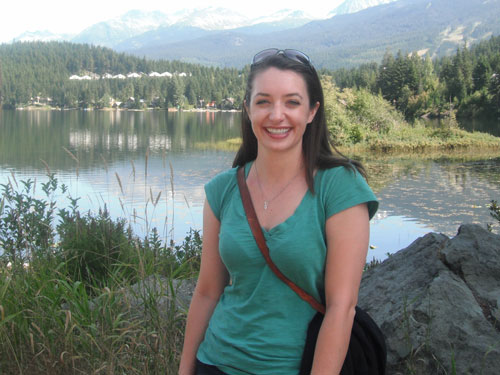For Autumn Lotze ’07, a trip to Hungary and an early interest in community were the embers that sparked her career trajectory into disaster resilience and risk management.
Through her upbringing in an Ohio area where residents maintain strong ties to their Eastern European roots, Lotze developed an early interest in understanding what makes people both unique and similar. Her double major in international studies and Anthropology & Sociology was a springboard to satisfy her curiosity around the complexities of identity, culture and community.
“My education provided me with a more critical lens to look at the systems we live in,” said Lotze. She became interested in how social structures impact a community’s vulnerability and resilience before and after natural disasters.
“Disaster preparedness is a team sport — there’s much we can do as individuals, but it’s also critical we work together,” she said. “We have to understand that community level events like disasters require a whole community approach to effectively prepare for and respond to them.”
During her junior year study abroad experience in Hungary, Lotze interned with a public interest organization representing marginalized communities and noticed those same communities were disproportionately impacted by recent flooding. That experience lead to her senior research, “Unnatural Disasters: The Social Construction of Vulnerability.”
“Autumn’s study abroad provided the empirical traction for the already sophisticated theoretical mind she had developed at Denison,” said Associate Professor of Sociology and Anthropology Veerendra Lele. “Her senior research extended that, and her senior thesis one of the best I have ever supervised. She was an excellent student.”
After graduation Lotze found industry and policy work experience in Washington, D.C., where she had a window into some of the economic effects of disasters. But, she knew her heart lay elsewhere getting her feet on the ground and working to shore up community vulnerability and plan for disaster management.
“The frequency of extreme weather events, higher populations in denser urban areas and effects of aging infrastructure are only going to increase, and all of these things play a role in disaster vulnerability,” Lotze said.
At the School of Community and Regional Planning (SCARP) at University of British Columbia, she formed an “invaluable foundation” for emergency management and disaster vulnerability and preparedness. Lotze recently applied these skills with the American Red Cross as senior associate of Community Mobilization in its Disaster Cycle Services division, which provides disaster preparedness, response and recovery support and services to communities around the country.
“At American Red Cross we look to understand how we can collaborate with community partners and stakeholders to mobilize information and resources to respond, recover and prepare in advance for disasters.”
Lotze recently began a new role with another disaster recovery organization — the New Orleans-based St. Bernard Project (SBP). At SBP Lotze will focus on building community disaster resilience by training small businesses, homeowners and municipalities on proactive ways to prepare for disaster.
“We see disasters happening with increasing frequency, and there is so much potential for communities become more resilient and proactive in dealing with those risks.” She added, “This is the space in which I am most excited to work!”







